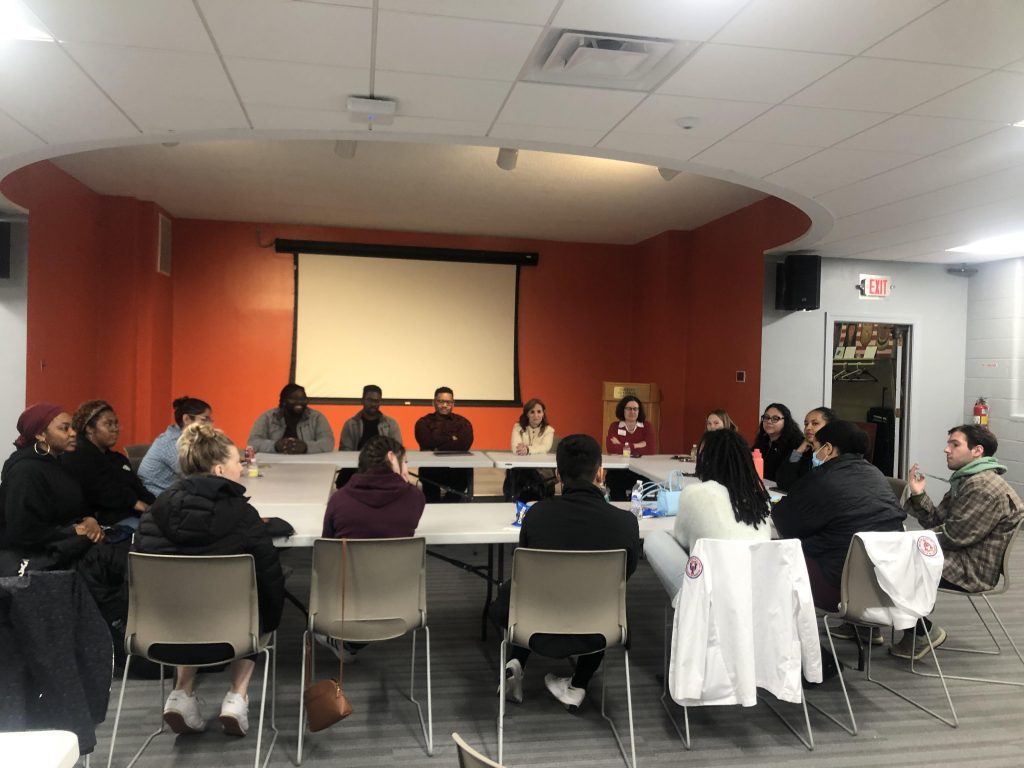
The importance of representation plays a role in many people’s lives. Individuals rely on relatable stories, examples and leaders to show the way and encourage them to consider different walks of life. Representation was a key aspect of a documentary recently viewed by Bradley students.
On April 1, The Multicultural Association of Pre-Health Students (MAPS) hosted a watch party for a documentary titled “Black Men in White Coats,” followed by a discussion of minority involvement and lack thereof in the medical field. Joining Bradley participants were medical students from the University of Illinois College of Medicine at Peoria, such as first-years Kenichi Haynie and Jhamal Wallace.
Black Men in White Coats is an organization that campaigns for an increase in the number of Black men in the medical field through exposure, inspiration and mentoring. The documentary addressed the lack of diversity in the field, possible solutions to the problem and what might happen if the issue isn’t addressed.
The bulk of the discussion that ensued consisted of personal experiences and the exploration of diversity and inclusion.
Haynie stated that the documentary was informative and further highlighted the extent of the disparity that even he didn’t realize until after he got into medical school.
“It definitely reinforces the idea that we need [Black men] in medicine,” Haynie said. “The fact that there are four Black men in my class and six in the whole school … [means that] there’s an added significance behind what we are doing.”
The message of representation was repeated throughout the film with examples of certain pressures from the media placed upon Black youth, as they are primarily pushed to pursue music, acting and sports. Coupled with the lack of diversity in the field itself, the likelihood that young Black students will consider studying medicine continues to decrease.
“We need to push the narrative that those are not the only options to get out of your situation,” Haynie said.
Wallace agreed with Haynie, stating that there needs to be more encouragement and support for Black men interested in undergraduate studies.
“If Black men are not going to undergrad, then obviously medical school [and other careers] aren’t available,” Wallace said. “It’s kind of like, ‘How do we get them to undergrad first?’”
MAPS organized the watch party after the club adviser, Dr. Valerie Bennett, brought up the idea. Bennett previously viewed the documentary after being given access in January with her involvement in the National Association for Advisors of the Health Professions.
“It was such a moving experience that really raised so many issues,” Bennett said. “I saw so many of the challenges that even my students at Bradley struggle with. It inspired me to think, ‘Can I now [use this documentary to] bring this [topic] to [campus] to share with my students?’”
MAPS plans to host another watch party in the fall semester while opening up the discussion to the Peoria community in hopes of furthering the conversation on Black men in the medical field.



